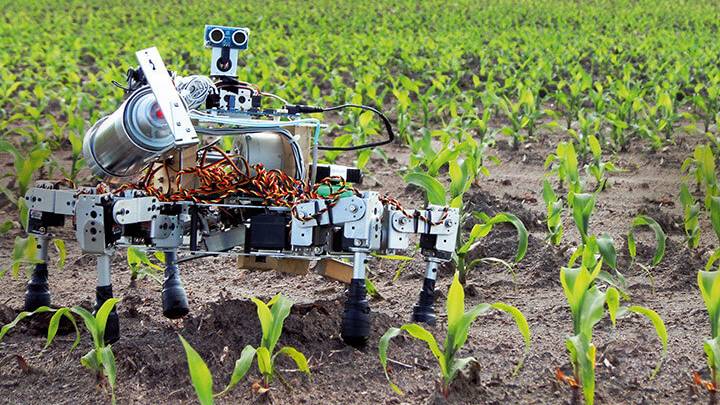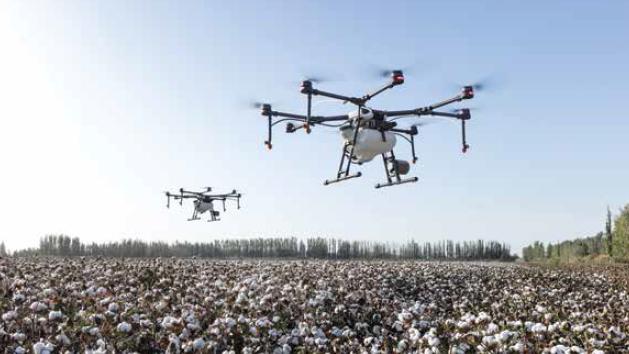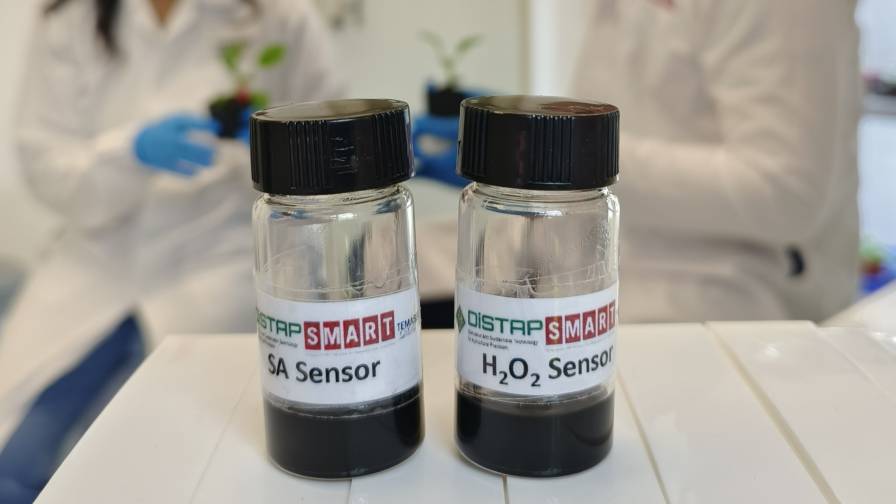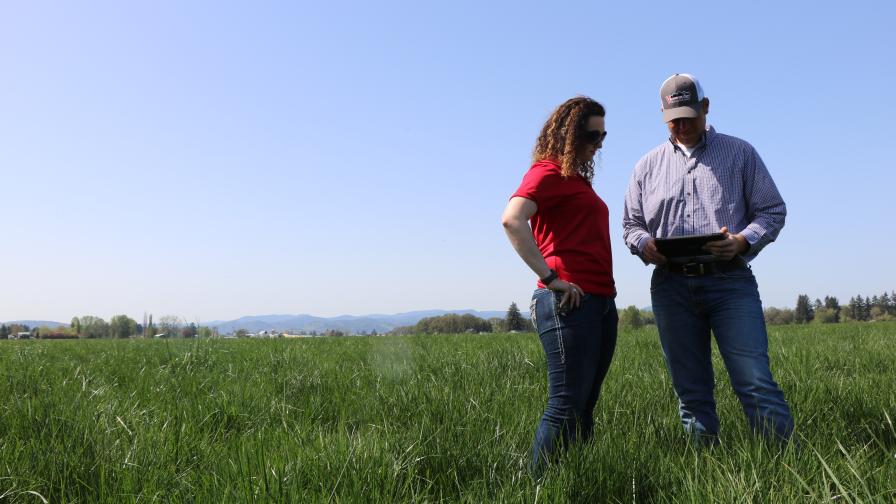Automated Agricultural Helpers: Ripe for Robots
Crammed with cameras and sensors, the metal crab slowly works its way through the cornfield, according to Bayer. By scanning its environment, the little electronic harvest helper cunningly avoids heaps of earth and plant stems. Sowing, fertilizing, planting, bringing out herbicides or picking fruits: Dozens of these intelligent harvesting machines could be capable of working a complete field independently one day. Only the hushed buzz of their servomotors would reveal their nearly silent work.
“Agriculture still offers great potential for automation,” says Peter Dahmen, a member of Bayer Crop Science’s research department. And some inventors and engineers like David Dorhout from Des Moines, IA, are offering innovative and forward-looking solutions: “Why not take the large machines of today and break them into thousands of smaller machines.” So he invented the six-legged Agrirobot “Prospero”. The autonomous micro-planter is just slightly larger than a basketball and yet it performs wondrous things. Its little aluminum legs easily carry it over every plot surface. If it finds an empty space, it will drill a hole into the ground and place a seed. Next, Prospero marks the spot with a spray and rambles off again.
In Dorhout’s vision, a whole swarm of his little agricrabs tends the field and even communicates among each other. “Similar to ants”, he says. But instead of pheromones, Dorhout’s machines use infrared signals to conduct their colleagues to an unworked area of the field. “This approach completely frees the farmer from the farm machine and gives him more time for the economic and scientific aspects of his agribusiness”, the inventor explains. The farmer gains more time for seed selection, soil analysis or financial planning. “I’m really interested to see what the farmers of tomorrow will come up with if they are given a tool that tends their fields inch by inch or plant by plant,” Dorhout says.
Professor Simon Blackmore agrees: “Precision is the key to efficient agriculture.” He is the director of the newly founded National Centre for Precision Farming (NCPF) in Great Britain. And raising efficiency has become exceedingly necessary: according to the Food and Agriculture Organization (FAO) worldwide food production will have to increase by 70 percent until 2050 to accommodate the worldwide demand. To meet this, manufacturers have already begun working on a vast array of high-performance machines today.










